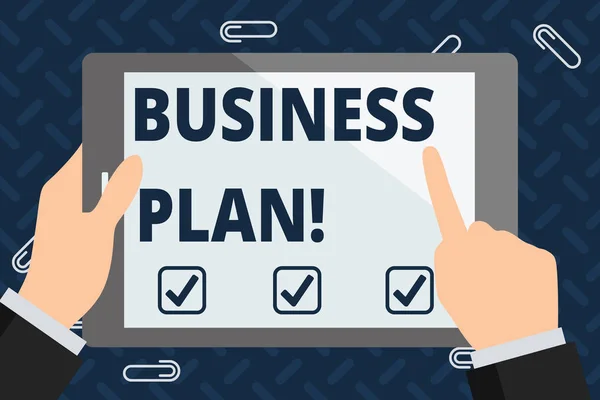Are you a graduate, young professional, or entrepreneur looking for success? Mentorship can be the answer to your personal and professional growth. In this blog post, we will explore how having a mentor can help you with personal development and professional success.
Mentorship can be a mutually beneficial relationship for the mentor and mentee. A mentor is a guide who has been where you are and can show you the way. A mentor can help you navigate the complex and ever-changing landscape of life, providing the support and encouragement you need to grow and thrive. As the mentee you can tap into their insights and knowledge to develop new skills and achieve your goals.
Why you need a mentor for Personal Development?
Mentorship can help you to discover who you truly are and what you want out of life. It can be a transformative and life-changing experience that will empower you to reach your full potential and achieve your dreams. This can lead to a more confident, skilled and capable individual, who is better equipped to take on new challenges and opportunities.
In summary, this is how mentorship can help you in personal development goals.
- Self-discovery. A mentor can help you in your self-awareness journey to gain a better understanding of your strengths, weaknesses, and goals.
- Support and encouragement. A mentor can give you moral support and feed back to help you in achieving your goals.
- Constructive feedback, A mentor can help you to identify areas for self-improvement, and offer guidance on how to develop new skills.
Why you need mentorship in Professional Development?
Mentorship is key to go up the career ladder. A mentor can give you insights and connections to help you to navigate the complexities of your career. A mentor can also help you to identify potential career paths. Besides a mentor can give you advice on how to excel in your current role, and offer guide you on how to achieve future career goals. Other benefits of mentorship in career include;
- Increased job satisfaction and career success. A mentor can help you to have a deeper understanding of your field, stay current with latest industry developments, and provide guide you on how to advance in your career path.
- Exposure. As a mentee you will learn from the mentor’s experiences, mistakes, and successes and also be exposed to new ideas that may help you solve career problems.
- Feedback & Empowerment. A mentor can give you a safe space to ask questions, share your thoughts and brainstorm ideas. They can even help you to learn from their mistakes and avoid them
- Self-discovery. A mentor can help you to identify and overcome your limiting beliefs. They also help you to develop new skills, and even unlock your full potential. With the help of a good mentor, you can break through the glass barriers that have been holding you back, and become the best version of yourself.
How to find a good mentor

The simplest way to get a potential mentor is to consider someone already in your network. This should be someone with more experience and knowledge on areas that you want to gain. You can also look for a mentor with your similar education or career background.
Some of the best people to choose are; a former colleague you previously worked with, a teacher, or someone you admire in their field.
Finding the right mentor may take some time and effort, and it might require reaching out to several potential mentors before finding the right fit.
Which mentorship is best for you?
There are many types of mentorships that you may need in your personal and career development. Here’s a brief explanation of the different types of mentorships that may need:
Formal vs Informal mentorship:
Formal mentorship is a structured program or relationship where the mentee and mentor are matched by an organization or company. The goals and expectations of the mentorship are established at the beginning and regular meetings or check-ins are scheduled.
Informal mentorship, on the other hand, is a less structured relationship where the mentee and mentor may have a casual or organic connection. The mentee may seek out the mentor for guidance and the mentor may offer support on an as-needed basis.
Peer mentorship:
Peer mentorship is when the mentee and mentor are at a similar level in their careers or education. They may share similar experiences and can provide support and guidance to one another. This type of mentorship can be especially helpful for a high school graduate as they navigate the transition to college or the workforce.
Reverse mentorship:
Reverse mentorship is when the mentee is more experienced or knowledgeable in a specific area than the mentor. In this type of mentorship, the mentee is able to provide guidance and support to the mentor on a specific topic or area of expertise. This can be particularly beneficial in situations where the mentee is a high school graduate and the mentor is a college student or young professional.
Virtual mentorship:
Virtual mentorship is when the mentee and mentor interact primarily through technology such as video conferencing, email, or messaging. This type of mentorship can be especially beneficial for a high school graduate as it allows them to connect with mentors from different locations or industries.
All types of mentorships can be beneficial for you. It’s important to find the right mentor that is a good fit for you. You should consider your goals, interests, and what you want to gain from the mentorship before selecting a mentor. It’s also important to remember that mentorship is a two-way street, and the mentee should be prepared to actively participate in the relationship and make an effort to develop it.
How to contact your mentor
Once you have a potential mentor, it’s time to make the initial contact. As a mentee you should reach out to the her in a professional and respectful manner. It can be done through email or in person. Make sure you introduce yourself and explain why you are interested in working with the potential mentor.
It’s important to be clear about your goals and expectations of the mentorship. You should also commit and express your willingness to invest time and effort into the relationship.
How to Build a strong mentorship relationship:
Mentorship is a two-way street, and the mentee should be prepared to provide value to the mentor as well. Building a strong relationship will be an ongoing process. It involves the following activities from your end as a mentee.
- Being responsive to the mentor’s communication
- Being punctual to scheduled meetings,
- Actively participating in the mentorship activities.
- Asking questions, Share your thoughts and ideas openly
- Actively listen to the mentor’s advice.
As the relationship develops, the mentee should set goals for the mentorship, and regularly check-in with the mentor to ensure they are meeting those goals.
Conclusion
In conclusion, mentorship is a valuable tool for personal and professional development. It can help with self-discovery, personal growth, career advancement, and job satisfaction. There are different types of mentorships such as formal vs informal, peer, reverse, and virtual mentorship, each one with its own specific benefits. Finding the right mentor requires you to identify a potential mentor, making initial contact, and building a relationship.
While finding the right mentor may take some time and effort, it’s worth it in the long run. When approaching a potential mentor, it’s important to be professional and respectful, to be clear about your goals, and to express your willingness to invest time and effort into the relationship. Building a strong mentorship takes time and effort, it’s important to set goals, regularly check-in and actively participate in the mentorship. Remember that mentorship is a two-way street, and be prepared to provide value to the mentor as well.



